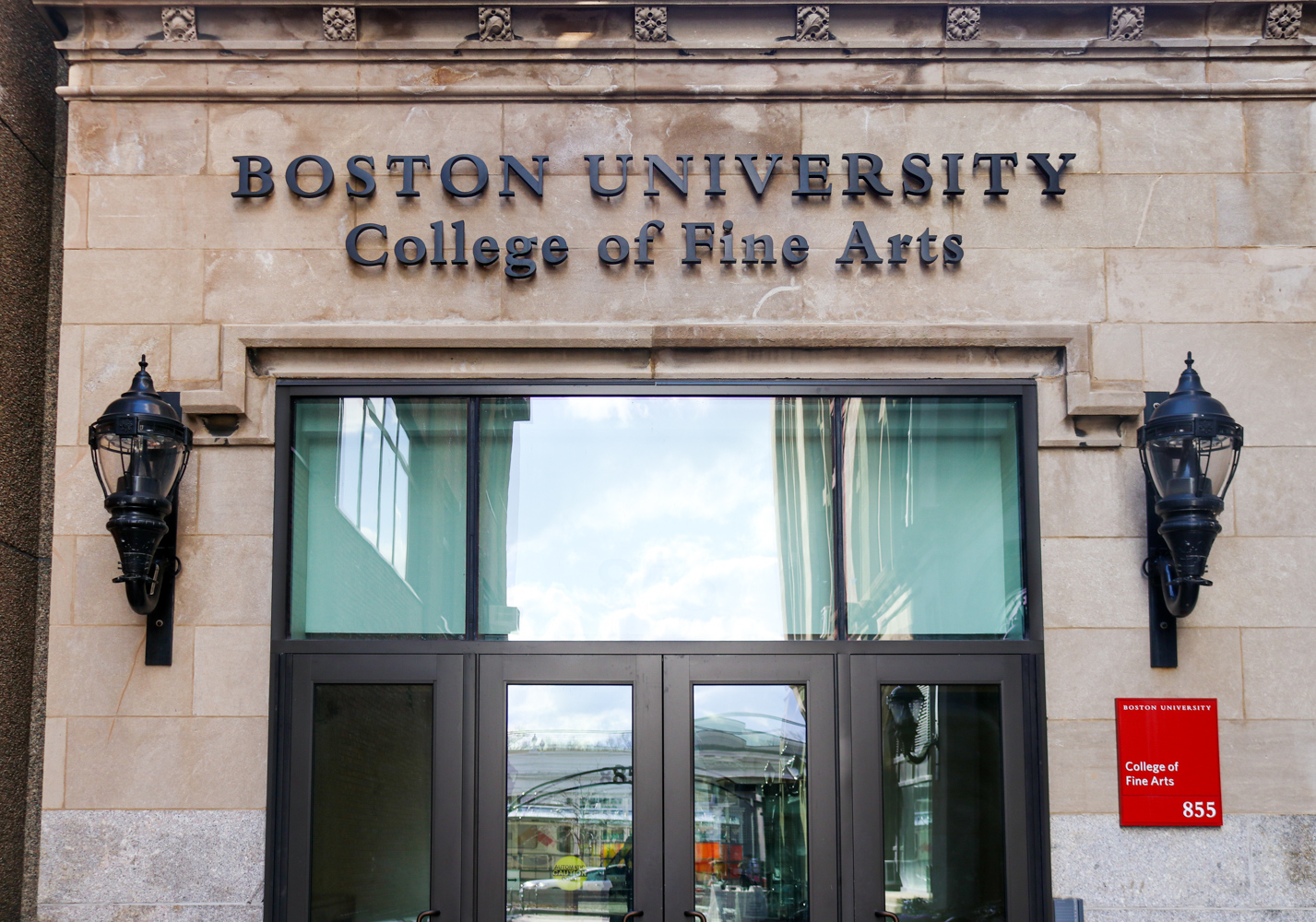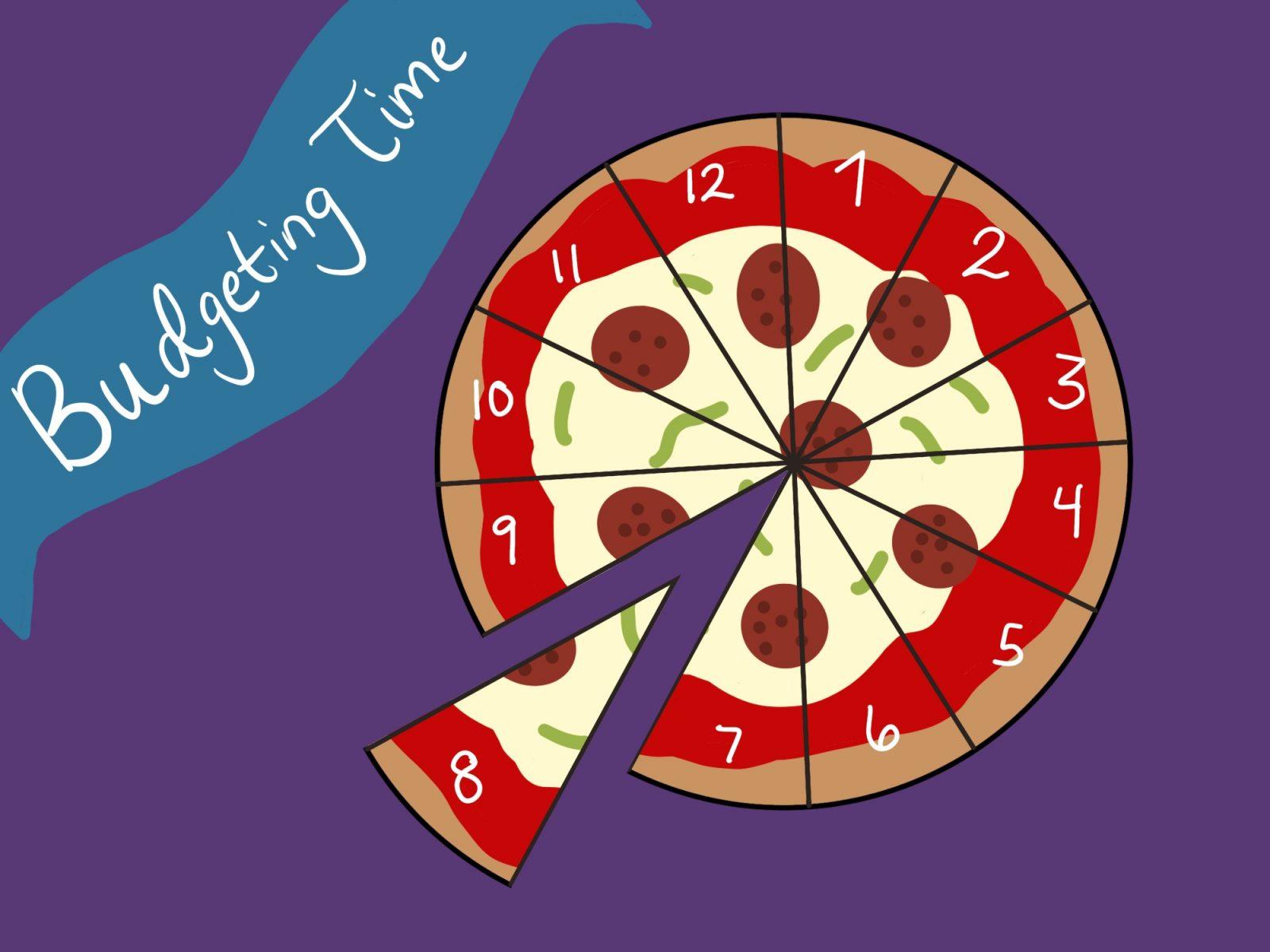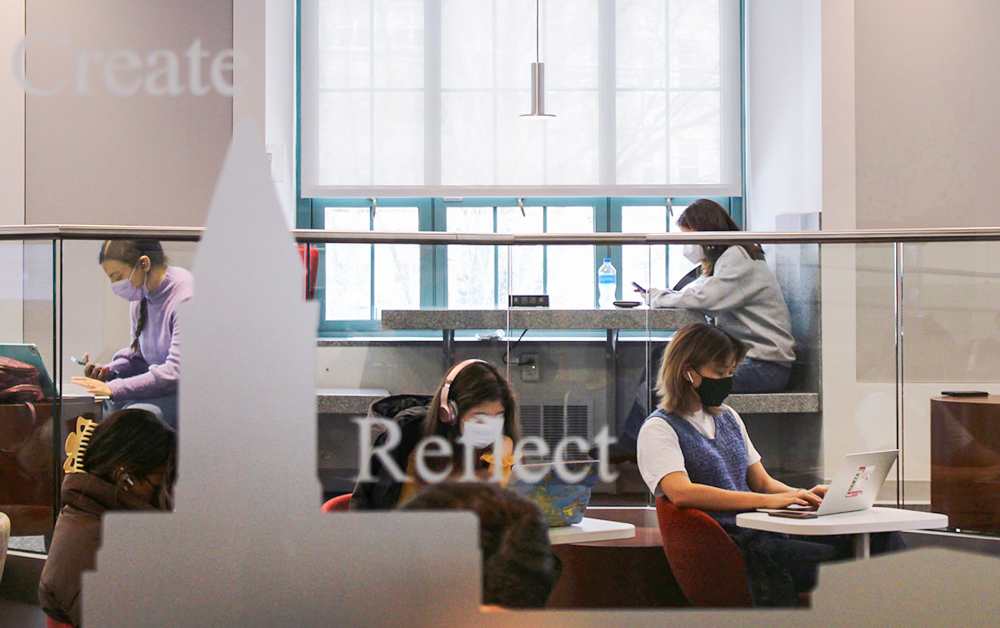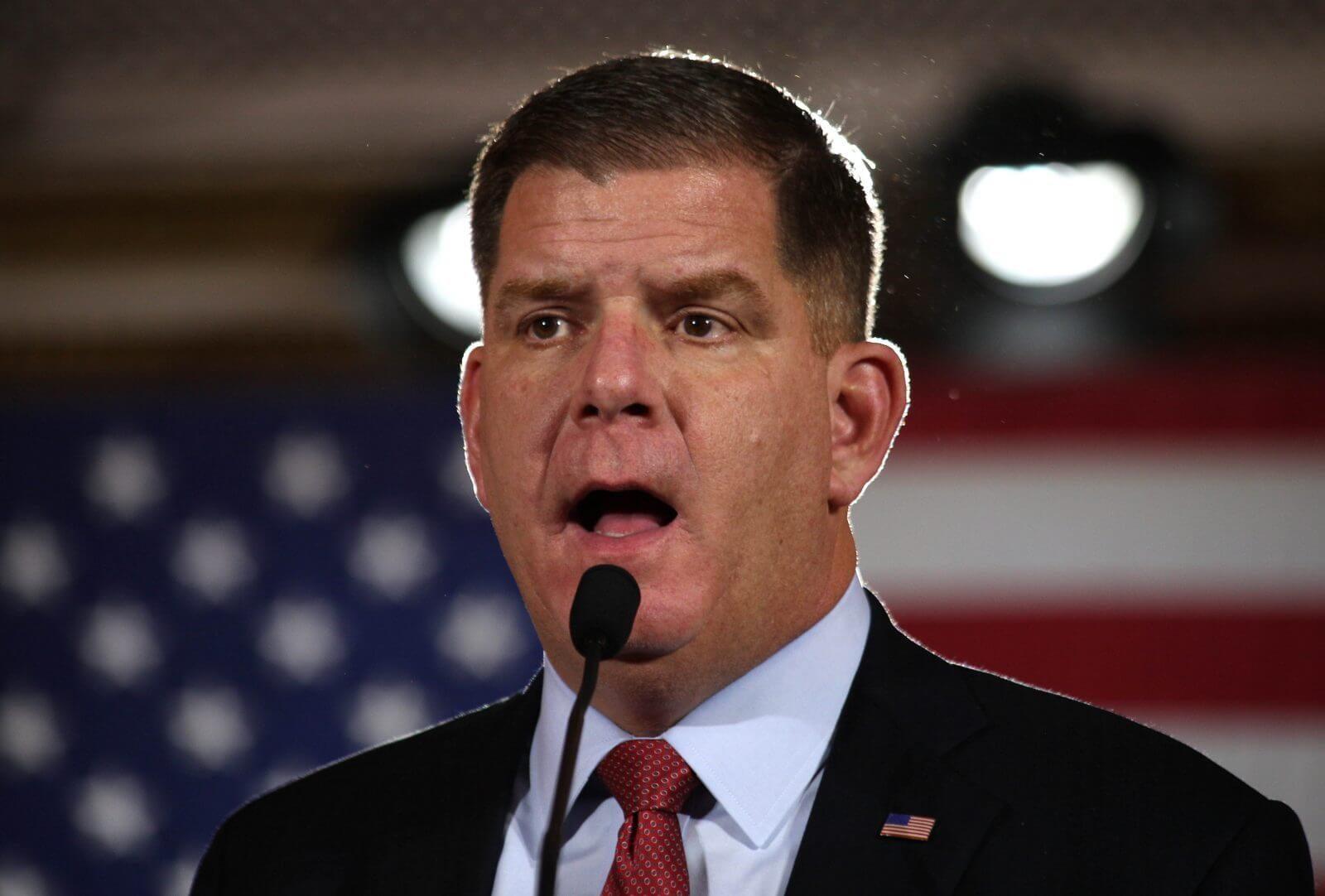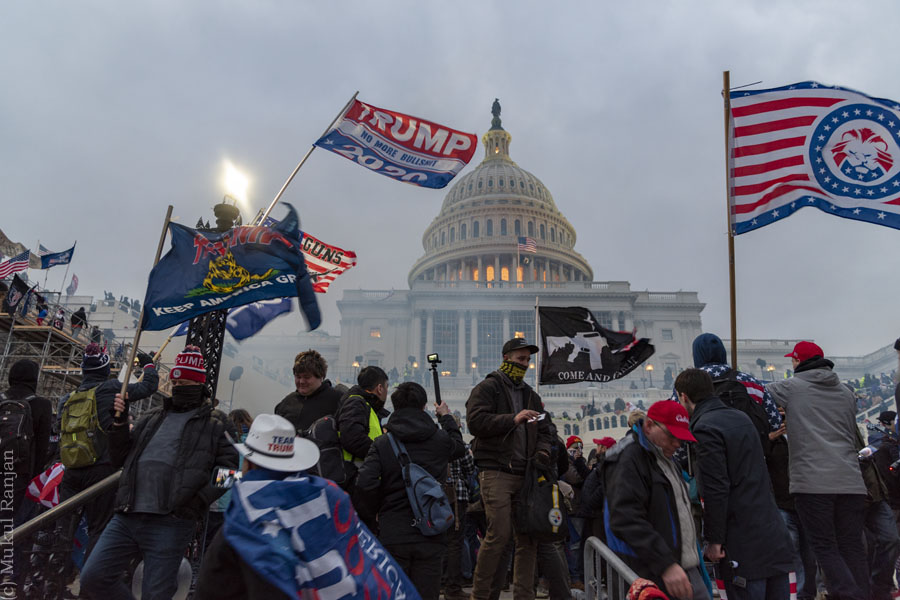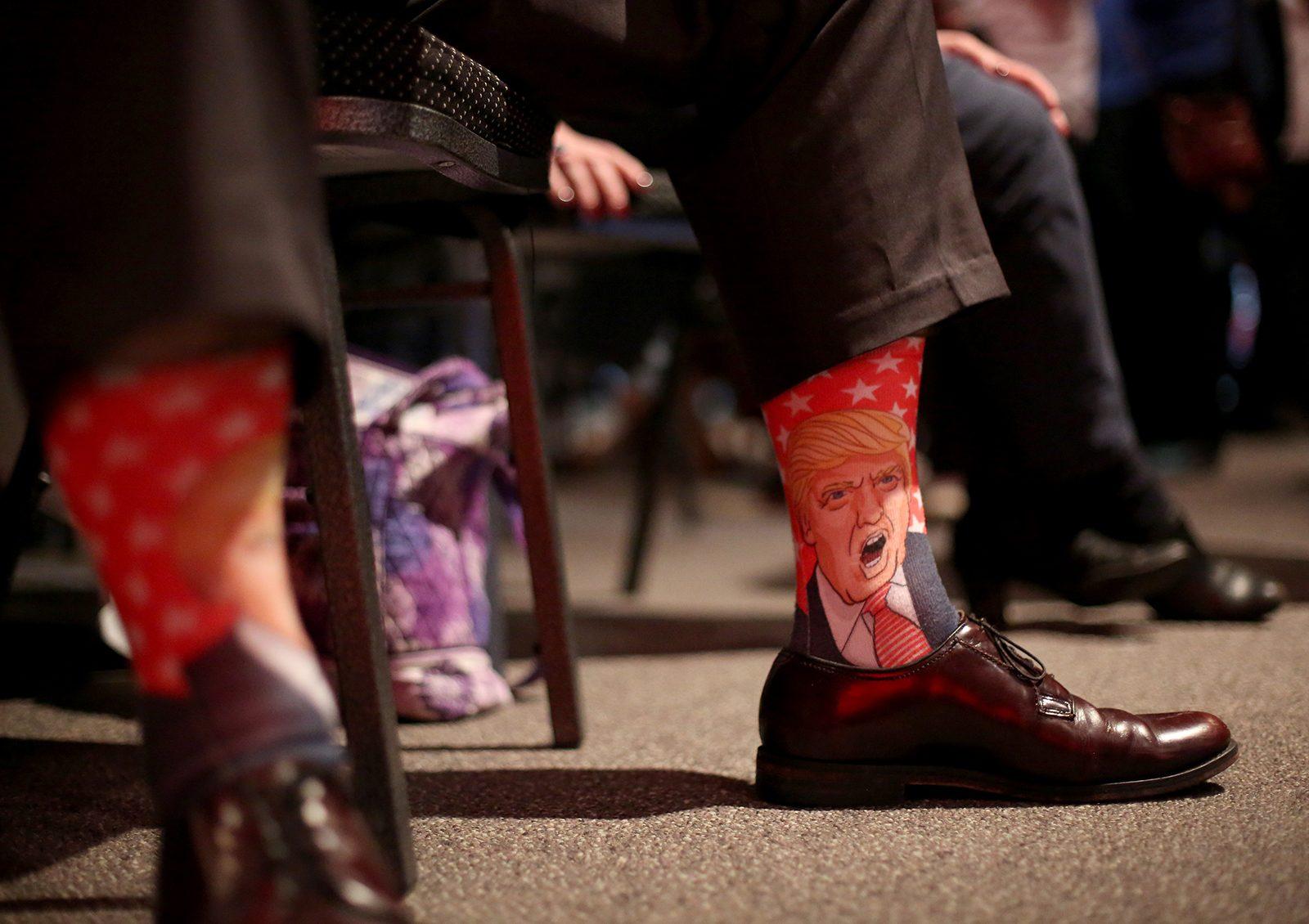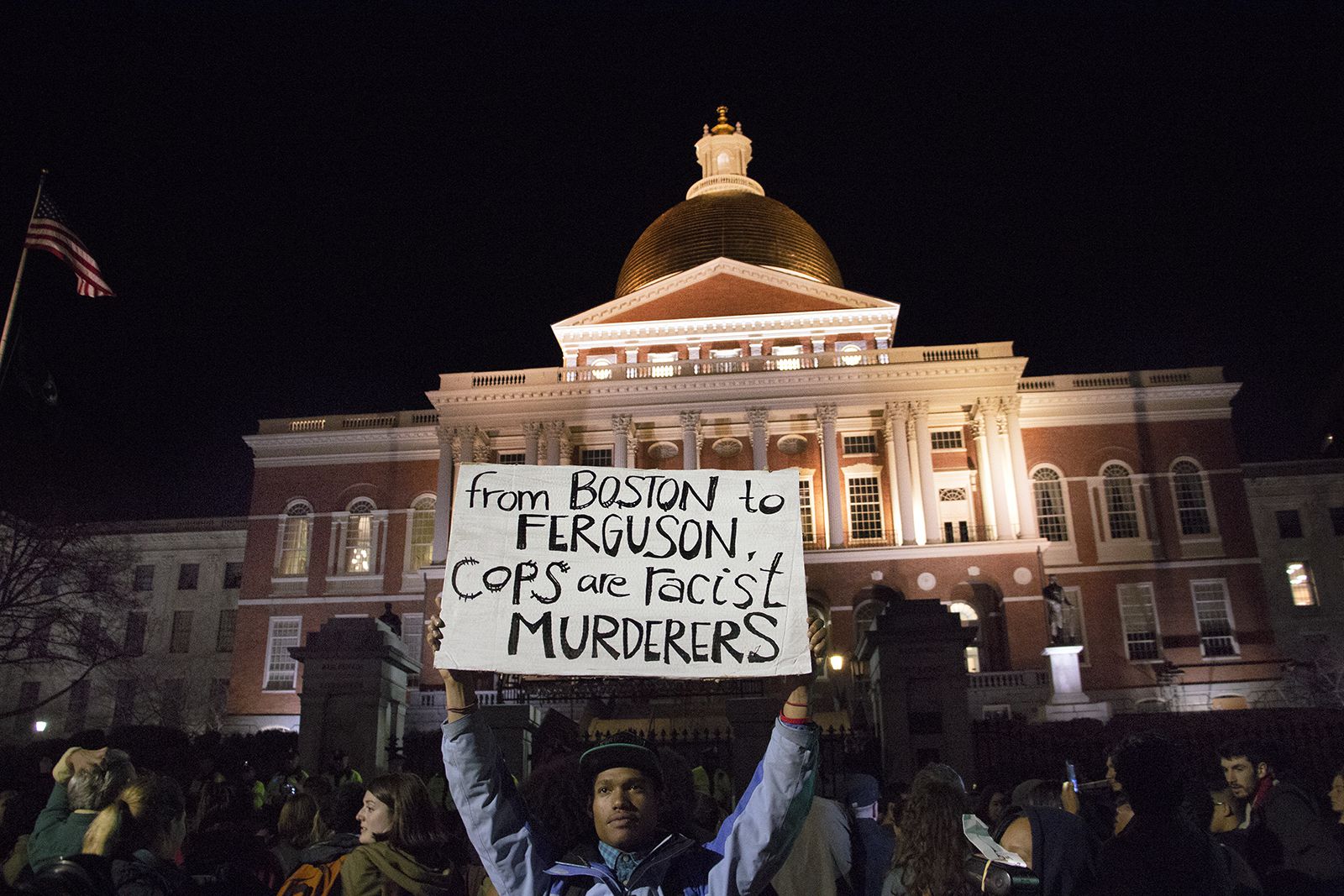At Boston University, Barack Obama means business. When it comes to economic issues like jobs, health care and investments, much of the BU community trusts Obama more than it trusts John McCain, a survey suggests.’
In a survey of 105 randomly selected BU students, 79 said they thought Obama is most capable of ‘fixing’ the economy and 17 said they thought McCain is most capable.
In the same survey of an American government lecture yielding 56 responses, 49 students said they thought Obama would do a better job overall of remedying the economy, five students said they thought McCain would do a better job overall and two students said neither candidate.
Students responding to the survey explained their choices mostly in terms of the candidates’ tax plans. Mark Caputo, a School of Management senior, said he supports Obama’s plan because it lowers taxes for middle-income families and raises taxes for the top 5 percent of incomes.
‘My general perception of McCain’s plan is that it doesn’t seem to help the people that need it,’ Caputo said. ‘The tax and health care benefits don’t help middle-class people.’
Emily Weaver, a College of Arts and Sciences freshman, also said McCain’s plan of cutting taxes for the wealthy will not help to revive the economy.
‘To fix the economy, you have to spend money,’ she said. ‘McCain is hesitant to increase taxes on the upper class because he thinks they would help the economy on their own accord. They should be taxed more because they have more to give.’
Students from the government class also said they supported Obama’s tax cuts for lower-income families. Arielle Crayton, a College of General Studies sophomore, said she agrees with the Democrat on who should get taxed, and lower taxes for lower incomes are ‘obvious.’
Morgan Keenan, a College of Communication junior taking the government class, said her CGS capstone project on Arizona’s economic problems led her to decide that Obama is more able to improve America’s economy.
‘The Arizona economy has the worst deficit in the nation,’ Keenan said. The state’s estimated deficit for 2008 is $1.7 billion, according to the Center for Budget and Policy Priorities.’
Though students said they thought Obama’s tax plan and overall economic plan are preferable to McCain’s, professors pointed out flaws in both plans, such as inattention to the budget deficit. Andrew Reeves, a BU political science professor, said neither candidate has answered the question of how they will fund their plans with the enormous deficit.
‘I think it’s a failure on both their parts,’ Reeves said. ‘When asked during the debate, McCain said he would cut spending by a few billion, which is not that much, and Obama didn’t say anything. They’re not forthright about plans to limit their own grand plans.’
Gaps in the plans aside, Reeves said the candidate’s promises are ‘irrelevant,’ because they would still face the long process of Congressional approval, interest groups and other road blocks.
‘It’s unlikely they will be able to say, ”Here’s my plan; I’m going to enact it,” Reeves said.
Political science professor Douglas Kriner said Obama’s plan will bring taxes back to the way they were before President Bush took office, but said the promises are simply ‘partisan rhetoric.’ He said he doubts whether either candidate can reduce the deficit because whatever Obama might raise in tax revenue would be spent on his other initiatives, and McCain might raise taxes but would also increase military spending.
‘There’s no way he [McCain] can balance the budget,’ Kriner said. ‘But we’re not sure balancing the budget is good. Keynesian economics say to increase the deficit in an economic downturn.’
SMG strategy and policy professor Jim Post said both candidates agree the economic bailout was a necessary, though less-than-favorable policy to help the failing markets. But Post pointed out that the candidates supported the bailout with different philosophies in mind.
McCain blames the crisis on corruption and advocates removing the ‘bad guys’ from the corporations. Obama’s method could change the entire system, under the assumption that the crisis occurred because of a lack of government regulation, Post said.
‘McCain would be more inclined to create a quick fix. Obama would be more inclined to create a systemic fix,’ Post said. ‘A quick fix happens faster but is probably less complete.’
Both candidates are ‘being unrealistic’ about their tax plans, because the U.S. faces about $2 trillion in debt, Post said. The next president will have to raise taxes as a source of revenue and cut spending in all areas, including health care, Social Security and defense.’
‘McCain’s not going to change anything, he’s jut going to keep giving tax breaks to big corporations who waste money and resources,’ Katie Loeb, a CAS junior, said. ‘It’s a cycle.’
Join the party?
Because most students support Obama’s economic plan, it’s no surprise that most BU students are likewise voting for the Democratic candidate.
Of 105 randomly surveyed BU students, 85 said they would vote for Obama and seven said they would vote for McCain.
But in the same survey, when asked to select which economic plan they supported without knowing which plan coincided with which candidate, 62 chose Obama’s economic plan, 15 chose McCain’s economic plan, 25 did not choose either plan and three students picked a combination of both plans.
Bethany Croke, a CAS senior, said the economy is ‘obviously’ very important, especially because she is searching for a job, but the candidates’ economic plans will not affect her vote.
‘I’m just going by party lines,’ Croke said.
Most students said the economy is an important issue, but some said they had made their decision before the candidates addressed the failing economy. Caitlin Flannery, a CAS freshman, said she thinks students vote based on their upbringing and their parents’ political views.
Lorah Ludwig, a Sargent College of Health and Rehabilitation Sciences freshman, said she has no preference for either candidate’s health care plan, but she is voting for Obama because ‘we need a change.’
‘McCain is a Bush,’ Ludwig said. ‘It’s the same thing.’
Alike Abroad
Some students said they focus most heavily on the candidates’ foreign policies. Rachel Greenfield, a CAS freshman, said the war in Iraq is a more important issue than the economy in general.
Andrew Bacevich, an international relations professor, said Republicans and Democrats generally do not differ on international security, which is reflected in the similarities of both candidates’ platforms on defense spending.
‘Both parties are committed to the proposition that the U.S. should remain militarily supreme,’ Bacevich said.
Bacevich said that though both candidates want to increase the size of the military, the army and navy are already so large that the increases are not significant. Also, both candidates are ‘over-promising’ the benefits of their defense budget plans, such as McCain’s vow to freeze all non-defense spending for a year and use ‘all savings from victory’ in Iraq and Afghanistan to reduce the deficit.
‘Since victory in Iraq and Afghanistan is not likely to happen any time soon, it’s really kind of an empty promise,’ Bacevich said.
Government students also showed disparity between their choice for president and the economic and health care plans they support. In a survey of students in an American government lecture, 49 out of 56 students said they would vote for Obama, five out of 56 students said they would vote for John McCain and one student plans to vote for libertarian candidate Bob Barr.
However, in the same survey that presented the candidates’ economic plans anonymously, 37 students chose Obama’s economic plan, five chose McCain’s, and 12 students did not answer or did not support either plan. Two students supported a combination of both.
Politics professors said the economy is one of the most important factors in voters’ decisions, especially during this election.
‘The economy is first and foremost on voters minds today,’ Douglas Kriner, a political science professor, said. ‘In a time of a financial crisis, voters are feeling the pinch. They’re voting on pocketbook issues.’
Professor Reeves said voters do not vote specifically on candidates’ economic plans but according to whether the party currently in office has served voters well economically during the president’s term.
‘What matters more is how you’re doing . . . if you have a job, a 401k,’ Reeves said. ‘Obama will get a lot of votes because he has a ‘D’ and not an ‘R’ beside his name.’





















































































































